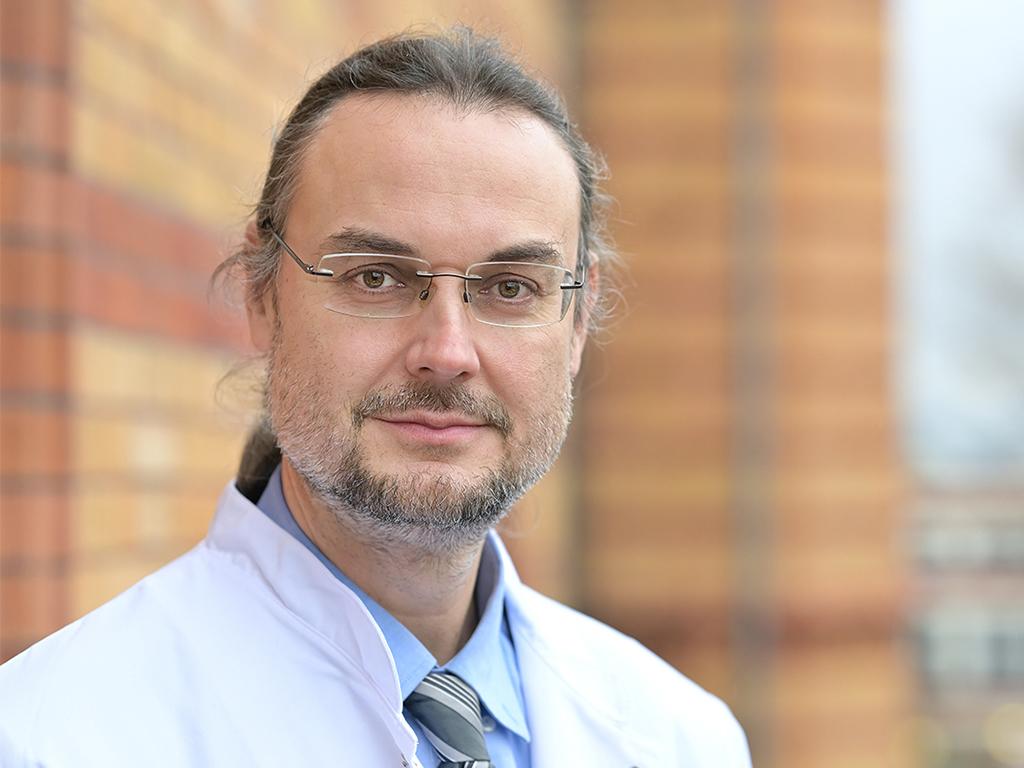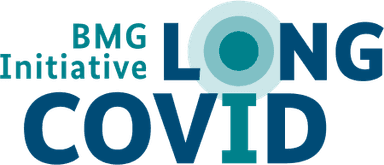Note: The following text is a guest article. They reflect the personal views of the author. The article is not an expression of opinion by the Federal Ministry of Health.
Guest article: Prof. Dr. Martin Walter
Prof. Dr. Martin Walter, Director of the University Clinic for Psychiatry and Psychotherapy in Jena, addresses the need for close cooperation between medical societies to pool expertise in health care, research and further education in the context of post-COVID syndrome (PCS) in his guest article.
Published on: 09/08/2023

© ZI | Daniel Lukac
PCS - an interdisciplinary disease
Given the fact that there are more than 100 symptoms associated with post-COVID syndrome (PCS), which can affect almost all bodily functions, it is not at all surprising that different professional bodies have differing views, particularly on the genesis and treatment of PCS.
In individual disciplines, there is certainly pre-existing experience with post-infectious secondary diseases as well as with the treatment of individual symptoms that are typical of PCS. However, instead of assigning primary responsibility to one discipline, it is important to gain joint knowledge and to cooperate within the framework of one's own expertise.
This process must not be limited to the exclusion of known diagnoses in one's own discipline - not least so that our patients are not left alone under the impression that "no one is there to help them". The task of orderly interdisciplinary advancement is therefore to unite the previously inadequately networked expertise of individual disciplines. Prior knowledge about pre-existing post-infectious syndromes such as the post-sepsis syndrome or ME/CFS must be integrated into the context of the exploding current database in the best possible way.
Strengthening intersectoral cooperation
The pandemic has once again demonstrated that intersectoral networks can make a difference. Patients in varying phases of the disease need comprehensive, sometimes highly specialised diagnostics and treatment of specific symptoms. However, given the lack of causal therapies, longer-term and low-threshold support must also be ensured. Intersectoral cooperation must therefore align the capacities and competencies of the players involved with the requirements of PCS and develop new diagnostic and treatment courses accordingly.
The interplay between medical care, rehabilitation and occupational reintegration in PCS must also be developed and managed by doctors in a professional manner. There is currently great potential in this area to further facilitate the participation of PCS patients, which has hardly been utilised to date. This process requires structured support and high-quality research to back it up.
In order to avoid chronification and long-term disability, it is necessary to eliminate the barriers to communication and knowledge, also through appropriate training standards. This can improve early diagnosis and intervention, especially in primary care including paediatrics.
Bundling of expertise in health care, research and advanced training
This bundling of interdisciplinary knowledge and its prompt dissemination will hinge on regionally available, networked expertise as well as established advanced training structures. By bundling all necessary disciplines and examination and treatment methods, regional centres would create a core prerequisite for ensuring high-quality, nationwide health care for PCS patients in Germany.
Centres managed by physicians can then actively participate as players in a regional health care concept that unites medical and social areas, for example in occupational participation. Through a differentiated internal structure, interdisciplinary, intersectoral and telemedical established regional PCS competence centres can steer and further develop approaches to regional health care.
Best possible efficiency through supraregional coordination
In an ideal situation, regional health care concepts will be developed around individual PCS competence centres and will be geared towards nationwide cooperation. The rapid transfer of changing knowledge via structures with a comparatively high level of academic professionalisation represents both a necessity and a unique opportunity for further development in the field of PCS. Networking of centres then also allows for nationwide health care at the highest possible standard through harmonisation.
In this context, individual foci of cooperating network partners will address synergistically an enormous need for research with limited human and financial resources. The currently unprecedented possibility of investigating the course of many patients who have contracted the disease for the first time will also be instrumental in providing important insights into other post-infectious secondary diseases. A Germany-wide care and research network of regional PCS competence centres must conduct coordinated research into the underlying causes of the disease and specific mechanisms, as well as into the health care options that are already available. Local centres should therefore combine scientific excellence in basic principles, diagnostics and interventions with experience in clinical care and contribute to networking with other national players, for example in BMBF health centres or other non-university research institutions.
Patient and Public Involvement (PPI)
It will be an essential task in a future structure to promote the inclusion of all players and affected persons as well as to avoid stigmatisation. Patients, some of whom are very well informed, will also be able to make the best possible use of relevant medical expertise, especially if they work together as equals. This is particularly relevant in the case of PCS, as many doctors at present lack advanced training.
However, promising participatory approaches will also need to be further developed for PCS research and care. The first joint participatory congress formats of professional societies such as the explicitly interdisciplinary medical association of Long COVID and the University Hospital of Jena together with Long COVID Germany or the German Society for ME/CFS and the Charité have already been able to provide valuable momentum for future events such as the 2nd Long COVID Congress on 24 and 25 November 2023 in Jena as well as a joint effort of all players.
Conclusion
It would appear that a coordinated approach at national level, which can do justice to the multidisciplinary nature and the rapid increase in information through appropriate structures, is just as possible as it is urgently required.
Concrete announcements, such as the funding of research with model projects on health care and treatment as well as further research networks announced by Federal Health Minister Lauterbach, thus represent a highly necessary and important first step in the right direction.
A "round table" approach can capture the needs and possibilities of different players in order to do justice to the diversity of patients and the health care landscape.
Vita
Prof. Dr. Martin Walter is a specialist in psychiatry and psychotherapy and Director of the University Clinic for Psychiatry and Psychotherapy in Jena. After clinical training in Magdeburg, Zurich and Lyon, Prof. Walter conducted research as a group leader at the Leibniz Institute for Neurobiology, Magdeburg, and as a professor and senior consultant at the University Hospital and the Max Planck Institute for Cybernetics, Tübingen. In addition to PCS, his research focuses on depression that is resistant to treatment and the combination of psychotherapy along with biological methods.
Prof. Walter has been the spokesperson for the Halle/Jena/Magdeburg site of the German Centre for Mental Health since the year 2021, which focuses on investigating the connection between inflammatory mechanisms and the psyche. In addition to his commitment as congress president of the first and second Long COVID congress in Jena in 2022 and 2023, Prof. Walter has been advocating an interdisciplinary research and health care approach to PCS as president of the Long COVID doctors' association since 2023.
